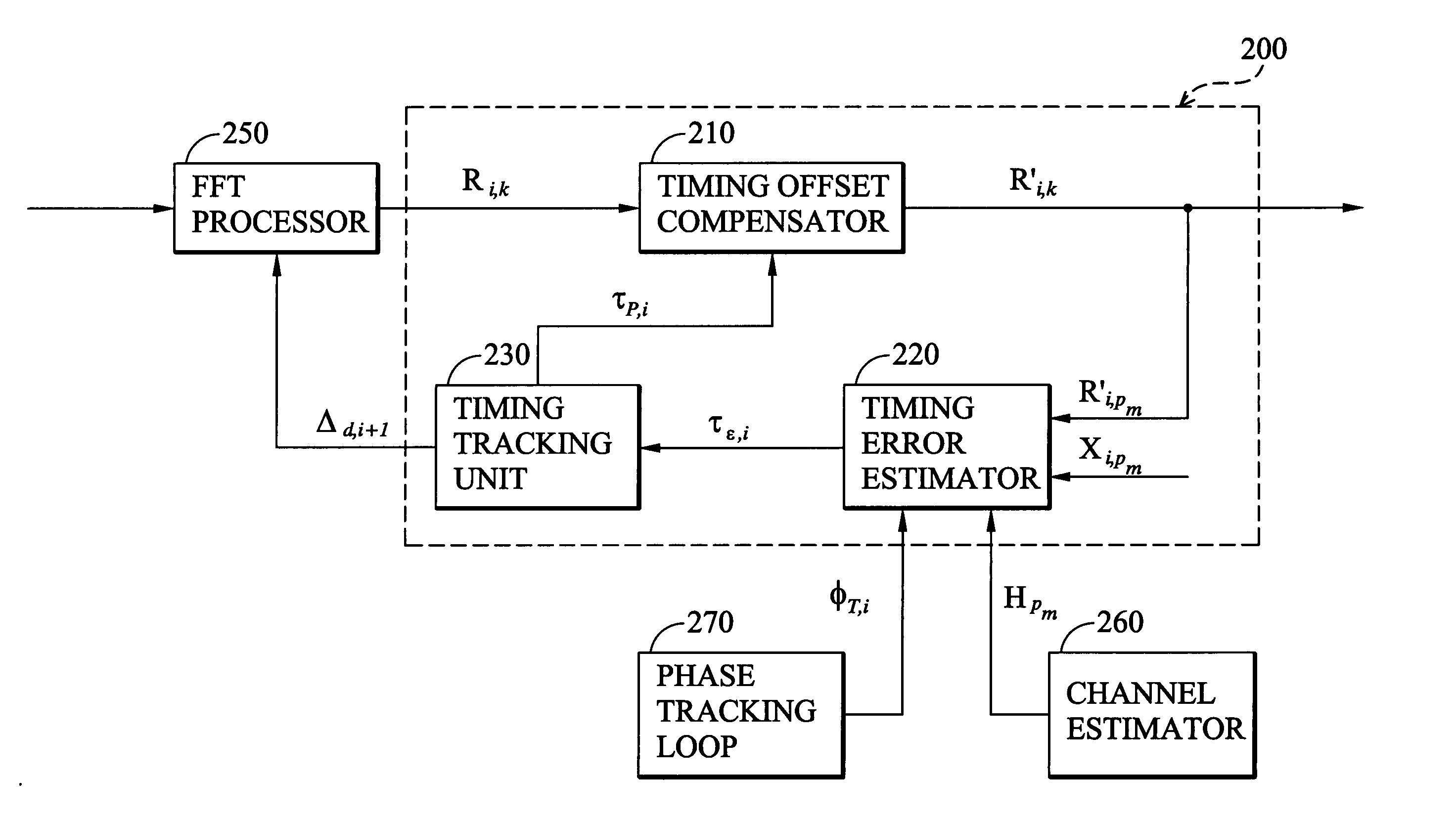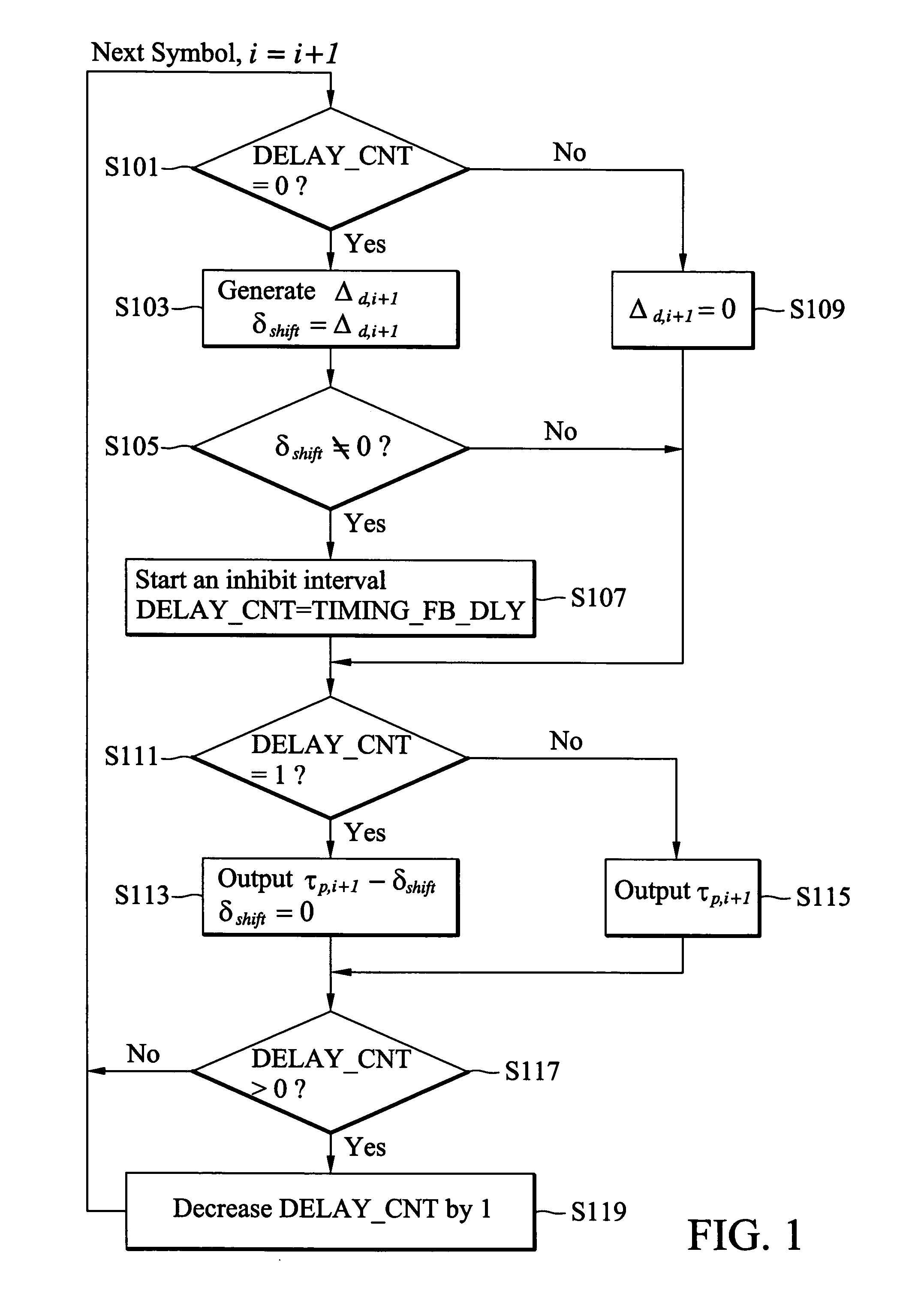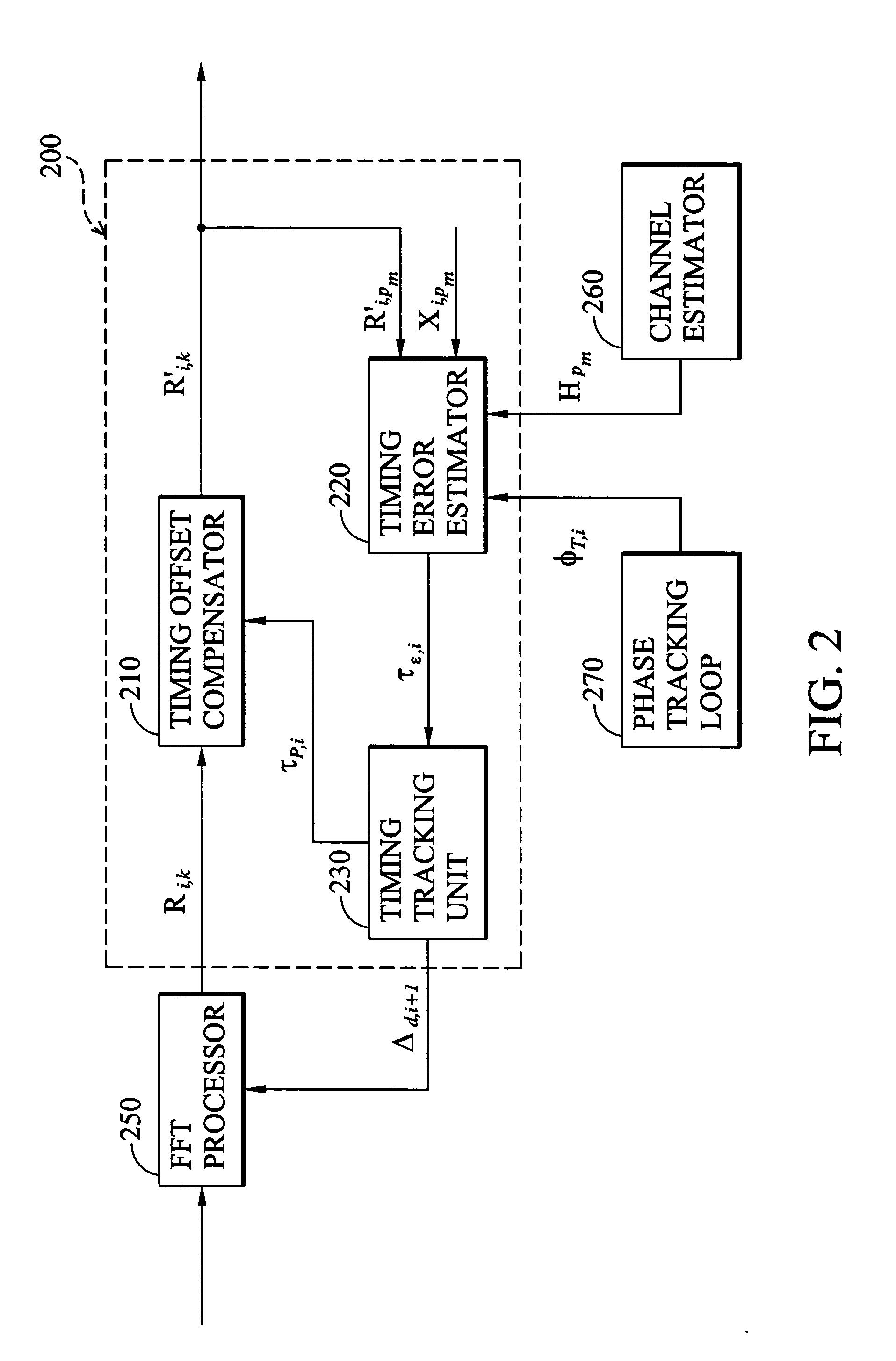Timing offset compensation in orthogonal frequency division multiplexing systems
a timing offset and orthogonal frequency division multiplexing technology, applied in multi-frequency code systems, baseband system details, amplitude demodulation, etc., can solve the problems of timing errors incurring inter-symbol interference (isi), inter-carrier interference (ici) and bit error rate (ber) deterioration of the receiver, and the synchronization error is known to be vulnerable to synchronization errors, etc., to achieve rapid acquisition and continuous tracking
- Summary
- Abstract
- Description
- Claims
- Application Information
AI Technical Summary
Benefits of technology
Problems solved by technology
Method used
Image
Examples
Embodiment Construction
[0018] The present invention will now be described in the context of the use of OFDM for communication, although the present invention is not limited to OFDM. The present invention is also described with reference to a wireless communication system that conforms to the IEEE 802.11a / g standard. According to the invention, the communication system need not be wireless and the conformant 802.11a / g transceiver referred to herein is merely an exemplary illustration.
[0019] In a conformant 802.11a / g system, an OFDM symbol is modulated onto a number of subcarriers by applying an N-point Inverse Fast Fourier Transform (FFT) with N=64. At the receiving end, the demodulation can be accomplished by means of an N-point FFT. Ignoring the ICI noise term, the output of FFT is described by Ri,k=HkXi,kⅇj ϕiⅇ-j 2πk Δ tiT+Ni,kandϕi=Ω·i+ϕ0,Ω=2π fɛT′(1)
where [0020] i denotes the OFDM symbol index, [0021] k denotes the subcarrier index, [0022] Xi,k is complex-valued data transmitted on...
PUM
 Login to View More
Login to View More Abstract
Description
Claims
Application Information
 Login to View More
Login to View More - R&D
- Intellectual Property
- Life Sciences
- Materials
- Tech Scout
- Unparalleled Data Quality
- Higher Quality Content
- 60% Fewer Hallucinations
Browse by: Latest US Patents, China's latest patents, Technical Efficacy Thesaurus, Application Domain, Technology Topic, Popular Technical Reports.
© 2025 PatSnap. All rights reserved.Legal|Privacy policy|Modern Slavery Act Transparency Statement|Sitemap|About US| Contact US: help@patsnap.com



